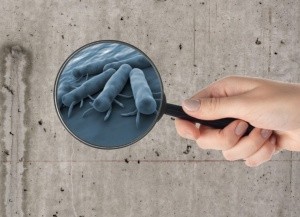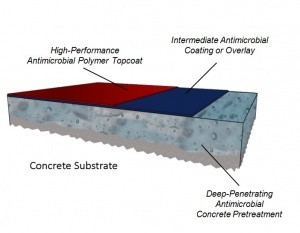Regular cleaning of your food manufacturing plant is a mandatory part of your sanitation program. It’s a major investment of time and money. And, you probably feel that you are doing everything you can to control contamination and meet your food flooring sanitation standards.
Contamination Risks Are Always Present in Your Facility.
Controlling bacteria is a constant battle in your plant. Your Hazardous Analysis and Critical Control Points (HACCP) programs form the foundation of your battle against contamination. The Critical Control Points (CCP) are where you have to be proactive in your ongoing cleaning programs. If you are responsible for food processing sanitation, you want to be sure to use the most effective tools and techniques available.
If you are not proactive in your ongoing cleaning programs, it will have growing bacteria, making your workplace less desirable and more challenging to draw in customers. That is why following your HAACP and CCP is essential and should be vital to your daily habits when creating a comfortable space in your industry.
Have You Thought About What is Happening Deep Within Your Concrete Floors?

Your concrete floor is a naturally porous material that can provide an ideal environment for harmful microbes to thrive. Water seeping into the crevices of the concrete provides a key element for nurturing another source of contamination right under your feet. Fungus, cracks, holes, bubbles etc., all happen within your concrete floors. That is why it is important to consider antimicrobial certified flooring to ensure sanitization and safety. Top coatings can protect your floor, but repeated abrasion and wash downs can create cracks that will allow contamination to grow deep within the substrate which will make it much harder to keep up with food flooring sanitation standards. You repair your floor and wall coatings during annual maintenance shutdowns, but how do you protect your concrete substrates from potential contamination throughout the rest of the year?
You Need Another Layer of Protection.

Whenever you can get down to your bare concrete floor, when renovating or during new construction, you should consider a concrete pre-treatment option. Applying an antimicrobial colloidal pre-treatment product prior to installation of a polymer coating or resurfacing system will help control this source of contamination. In the food & beverage processing industry, this fits in very well with FSMA (Food Safety Modernization Act) and HACCP (Hazard Analysis and Critical Control Points) protocols. This will also help you keep up with your food flooring sanitation standards and ensure that all of them are met.
Eliminate This Risk of Contamination From Your Floor.
By pre-treating your concrete floor or wall substrate with an antimicrobial colloidal product, you can achieve a host of benefits, but most importantly the peace of mind that your concrete has an active antimicrobial presence that will help combat contamination for years to come.
With Protective Industrial Polymers (PIP), your industry can be treated with antimicrobial flooring that can clear up any broken concrete floors and add an extra layer of protection to keep it long-lasting. PIP brings the best quality experience and understanding to fulfill your industrial flooring needs. PIP will control the bacterial protocols of your HACCP, and CCP will make it easier to follow daily tasks and create a welcoming environment for your customers.
Is contamination a hot-button topic in your food facility? Want to learn more about protecting your building envelope? Click here to access our multimedia kit: “Effectively Control Floor & Wall Contamination”


